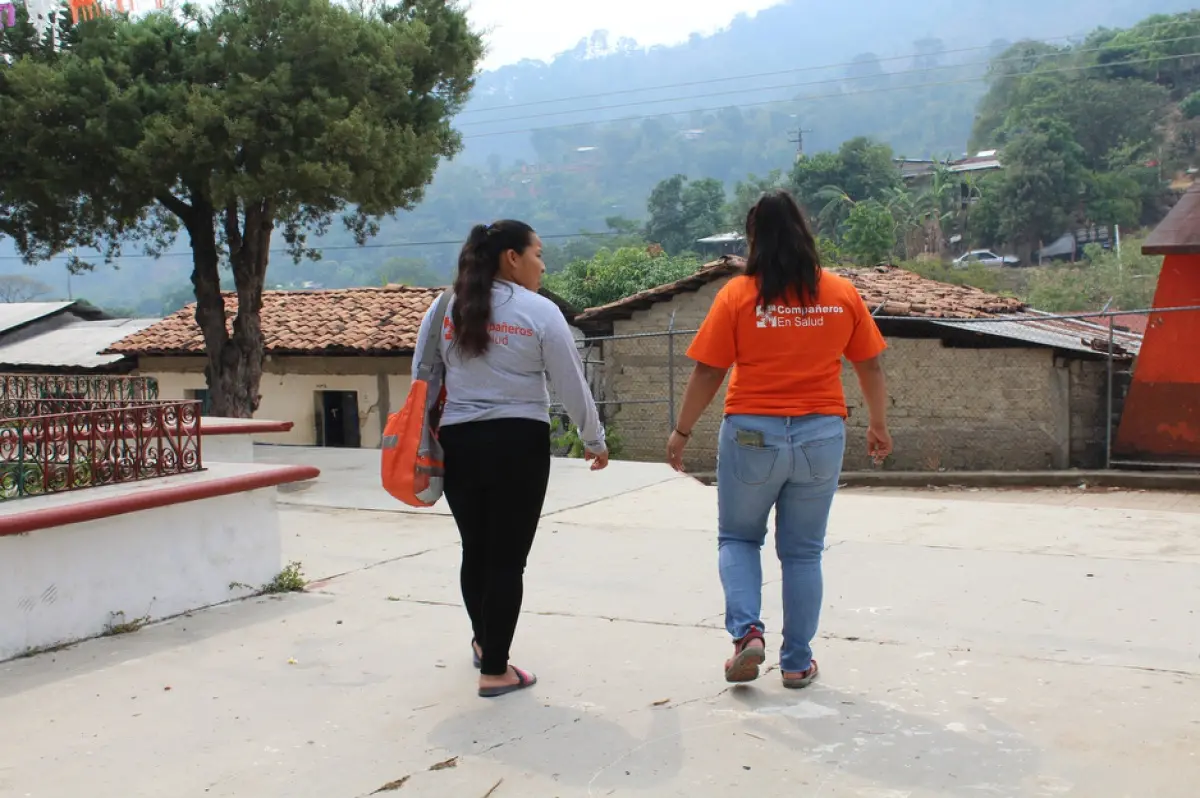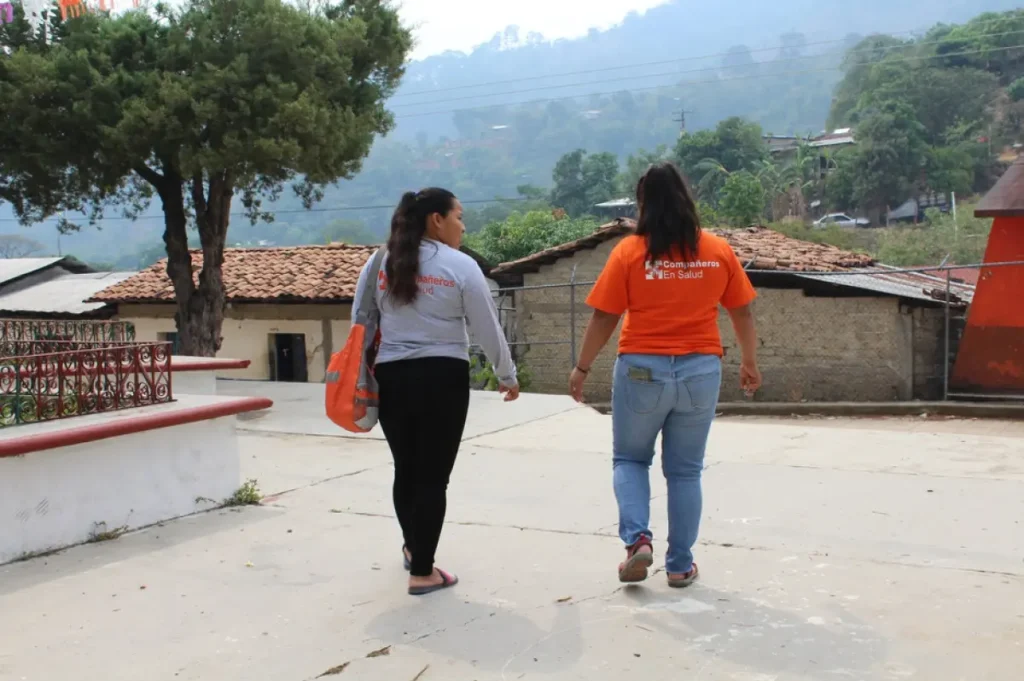Neighbours Helping Neighbours: Community Health Workers Essential to Care in Mexico

Community health workers provide culturally relevant care in rural Chiapas
Posted on July 7, 2022

When Mayra Ramirez began her role as a community health worker, she was filled with fear and doubts. She had never worked in health care before. But the desire to learn and develop new skills drove her to continue.
“At first, I wanted to study something [in college], but because I had no possibilities, this was a good place to start,” she says. “It motivated me to learn new things.”
Today, as a supervisor, Ramirez trains and mentors 30 community health workers from three communities in the rural, mountainous Sierra Madre region of Chiapas, Mexico: Salvador Urbina, La Soledad and Laguna del Cofre.
Compañeros En Salud, as Partners In Health is known locally, has worked in Chiapas, Mexico since 2011, strengthening the health system and providing medical care and social support. Accompaniment is fundamental to that care. The relationship between health workers and the communities where they work is not limited to clinics, but goes beyond, into the communities themselves. That spirit is embodied by Compañeros En Salud’s team of over 100 community health workers, known locally as acompañantes.

Since 2012, the community health worker program has hired and trained people from the rural communities where Compañeros En Salud works to provide medications and basic health services such as screenings and education.
These community health workers, predominantly women, grew up in or live in the communities they serve, enabling them to bring cultural and linguistic expertise to their work. They receive training from Compañeros En Salud in various health topics and learn how to conduct home visits for patients with chronic diseases, respiratory symptoms, pregnancy, and other health needs.
During these home visits, community health workers help patients navigate the health system, follow their treatment plans, and cope with difficult emotions that may arise. The goal of the program, since its inception, has been to build a bridge of trust between communities and clinics.
“We can learn a little more about the lives of the patients by being guided by the community health workers, because they really are the eyes of the community,” says Ramirez. “They are the ones who know the people best and their work is very important.”
Ramirez is originally from Capitán Luis Ángel Vidal, a city in the Frailesca region of Chiapas. She applied to be a community health worker six years ago. She still remembers her first assignment: making house calls to seven chronically ill patients, among them people with diabetes, hypertension and epilepsy. Her job was to follow up with each of them to help them avoid complications and make sure they followed their treatment plans. Over the next several months, she accompanied her patients and helped them bring their health conditions under control.

When she was promoted to supervisor in 2019, Ramirez faced a new challenge: leaving her family and friends and moving to Ángel Albino Corzo, also known as Jaltenango, some 70 kilometers from her home—the city where Compañeros En Salud is based. But she decided to take the chance: moving cities and taking on a new position, in hopes that she could share her skills with other women aspiring to serve their communities and continue to strengthen her own.
Managing 30 community health workers comes with many challenges. But in spite of the difficulties, community health work, for Ramirez, is about strength.
“I am very satisfied to be able to work with each one of the community health workers, to feel that I am contributing, that I am helping the patients and also them,” she says.
For Ramirez, it is important that women, especially those from communities in rural areas, have opportunities to learn, expand their horizons, and grow professionally. Women in rural Chiapas often don’t have access to education and traditional gender roles dictate that they stay at home and rely on their husbands for financial support.
Gender-based violence and stigma are daily realities for community health workers, who often face criticism for being women working in their communities. Ramirez acknowledges and applauds her team’s efforts, given all the obstacles they must overcome.
And she recognizes the motivation she sees in them—it’s the same drive she had six years ago, when she first began to accompany communities, and that has pushed her in the years since not to abandon her work.
“They gained courage, gave each other encouragement, and are still working day to day with patients,” she says.
Originally published on pih.org



